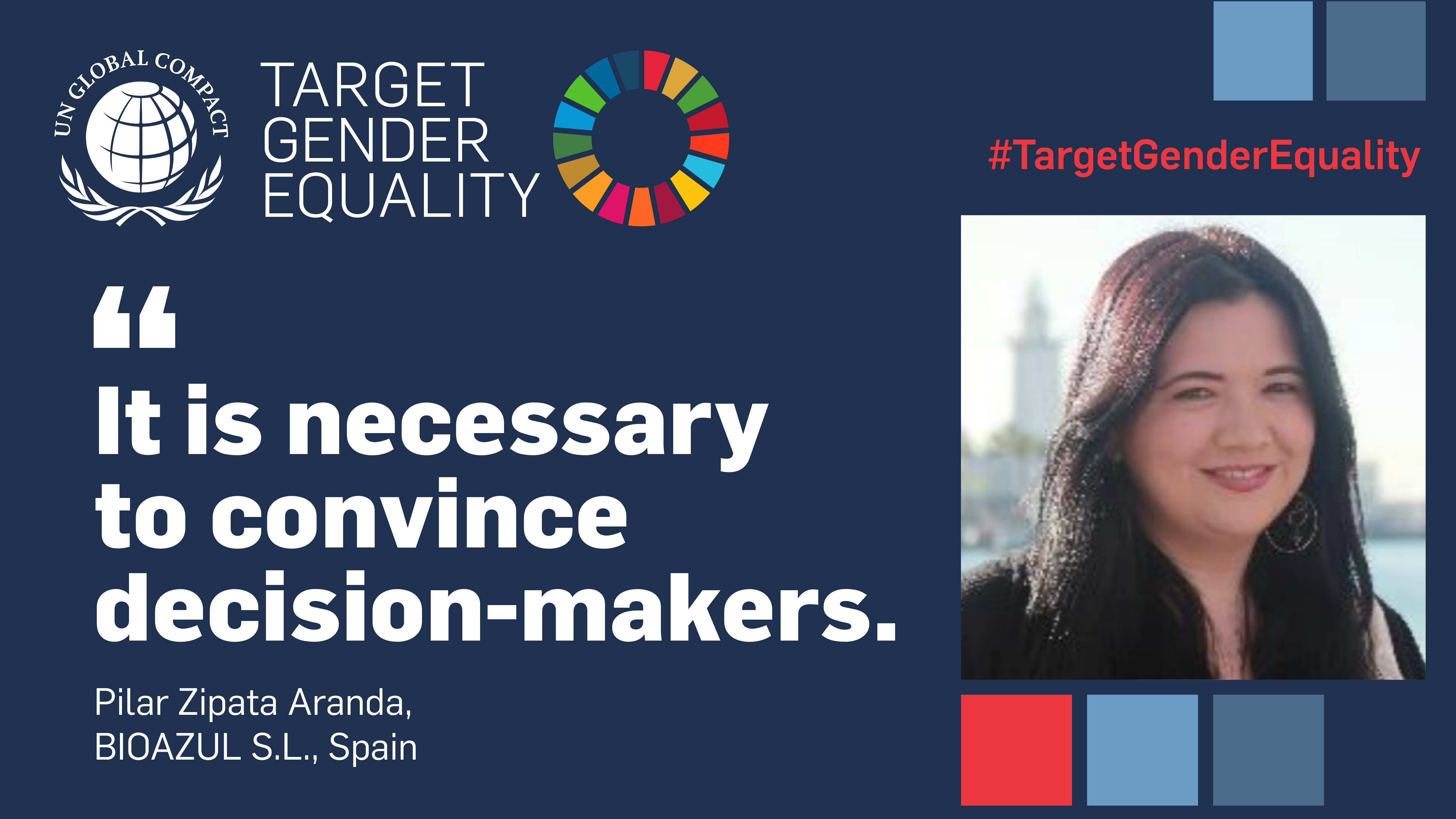Target Gender Equality – When She Leads
Pilar Zapata Aranda — Project Manager — BIOAZUL S.L. — Spain

We have 10 years to achieve the 17 Sustainable Development Goals. What are you doing to champion the Global Goals in your business?
I work for a company called BIOAZUL S.L., a Spanish SME with activities in the fields of water, energy and environment, and whose main aim is to develop eco-innovative solutions for urban and industrial water management (especially treatment and reuse)
while recovering resources. This way, the company contributes to the resolution of the societal challenges targeted by the Sustainable Development Goals, especially SDG6 (clean water and sanitation), SDG5 (gender equality), SDG11 (sustainable cities and communities), SDG12 (responsible consumption and production), SDG13 (climate action) and SDG17 (partnerships for the goals).
I have a MSc. in Biology with the specialization of Organisms and Environment (University of Malaga, Spain), and I have been working at the company as a Project Manager for 15 years. I am personally focused on R&D&I (research, development and innovation) for a circular economy – facilitating, writing and coordinating R&D&I projects aimed at treating “waste,” especially wastewater, while recovering secondary raw materials that can be further reinjected in the economy, thereby transferring this “waste” into a resource.
What motivates you to keep fighting for the issues you care about?
We live in a world in which resources are being used up, and therefore there is rising demand for alternative and sustainable solutions to cope with oncoming shortages. The water sector is key not only for human nourishment but, generally speaking, for human subsistence.
I grew up in an area where water scarcity has always been a problem, so I consider that preserving and making the best possible use of water as a resource is our duty as a society, as well as one of my personal commitments.
In addition, the “take-make-dispose” concept where raw materials are collected, then transformed into products that are used until they are finally discarded as waste, makes no sense anymore (and it never made sense, but the consequences of its use maybe were not so evident some years ago). It is also clear for me the transition from a linear economy where raw minerals are discarded after use to a circular economy where raw minerals are repaired, refurbished is a must. And therefore, it is necessary to look for all possible alternatives to take back materials once used and reintegrate them to the system if we do not want it to collapse. This is another of my personal commitments as well as one of the pillars of my work.
Can you share one obstacle that you had to overcome to achieve a successful career in business?
When I started working in water management, I realized that introducing new concepts or processes as part of a research strategy within water treatment facilities is not always easy. This may be due to the fact that, when a process works, many people do not see the need of changing it, as sustainability may not be a priority for everyone as the allures of the medium-long term benefits of sustainability are often sadly outweighed. In many cases, changes are pushed by the entry into force of new legislation that makes them necessary, but it is not easy to introduce them only because they will be beneficial for the environment, even if they come together with an economic benefit. It is necessary to convivence decision-makers that the benefits are not short-term but can have long-term, lasting changes.
